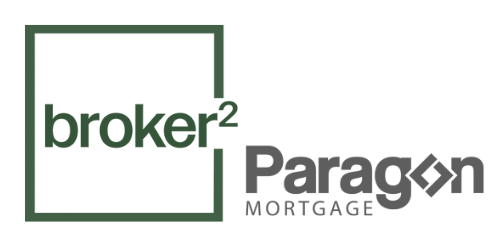Latest in Mortgage News, COVID-19, and Economic Recovery.
Sukh Sohal • June 24, 2020

Although the volume of news over the last month has been pretty tame in comparison to when COVID-19 initially hit, there has still been a lot going on. If you find yourself wondering about the current state of affairs as it relates to real estate, mortgage financing, and the recovery of our economy mid and post-pandemic, you've come to the right place!
Here is a quick recap, a look forward, and links to many good sources of information!
Questionable economic outlook.
Back in the third week of May, the head of the Canadian Mortgage and Housing Corporation (CMHC) made some pretty gloomy predictions.
These Included a potential decrease in house prices of 18%, a jump in mortgage deferrals by 20% from 12% by September, and a debt-to-GDP ratio jump from 99% to 130% by Q3.
However, this particular economic outlook wasn't widely accepted in the mortgage industry and was seen more as an absolute worst-case scenario. Despite this, CMHC went ahead and made changes to their underwriting guidelines
and qualifying criteria for insured mortgages.
CMHC changes policy for insured mortgages.
On June 4th, 2020, CMHC announced that they would be making changes to their underwriting qualification effective July 1st 2020.
Essentially, they have lowered the buying power of anyone looking for an insured mortgage by up to 10% by limiting the Gross/Total Debt Servicing (GDS/TDS) ratios to 35% and 42% respectively. They changed the credit score requirements to a minimum of 680 for at least one borrower. While they also removed non-traditional sources of down payment that increase indebtedness, (borrowed downpayment). A gifted downpayment from a family member is still acceptable.
Genworth and Canada Guaranty don't plan on changing guidelines.
In response to CMHC's changes, the other two mortgage insurers in Canada made announcements that they would not be changing their guidelines.
"Genworth Canada believes that its risk management framework, its dynamic underwriting policies and processes and its ongoing monitoring of conditions and market developments allow it to prudently adjudicate and manage its mortgage insurance exposure, including its exposure to this segment of borrowers with lower credit scores or higher debt service ratios," said Stuart Levings, President and CEO.
"Canada Guaranty confirms that no changes to underwriting policy are contemplated as a result of recent industry announcements... Given implementation of the qualifying stress test and historic default patterns, Canada Guaranty does not anticipate borrower debt service ratios at time of origination to be a significant predictor of mortgage defaults."
So although CMHC is taking a very pessimistic view towards our economic recovery and has made it harder to qualify for an insured mortgage going forward, Genworth and Canada Guaranty will be there to make sure more Canadians have access to insured mortgage products.
Economic Outlook from the Bank of Canada.
On June 22nd, Tiff Macklem, the new governor of the Bank of Canada, released his first public press release called Monetary Policy in the Context of COVID-19.
"Currently, we expect growth to resume in the third quarter. The economy will get an immediate boost as containment measures are lifted, people are called back to work, and households resume some of their normal activities. But it will be important not to assume that these growth rates will continue beyond the reopening phase. The pandemic is likely to inflict some lasting damage to demand and supply. The recovery will likely be prolonged and bumpy, with the potential for setbacks along the way."
Conference Board of Canada.
In a sizeable release, the Conference Board of Canada shared their Canadian Outlook Summary: Summer 2020.
"With the worst of the recession likely over, the outlook for 2021 is brighter. The economy is forecast to rebound by 6.7 per cent in 2021 and 4.8 per cent in 2022. As the threat of the pandemic eases, how well the reopening of the economy and the withdrawal of government support is managed will be a crucial determinant of the economy's trajectory over the next several years."
Business as usual.
By all accounts, it's business as usual amid this global pandemic. Although COVID-19 has impacted the number of houses being bought and sold, prices haven't dropped. CMHC has made it harder to qualify for an insured mortgage through them, but you have two other insurers providing options, so it's not a big deal.
If you're looking to make a move or need to discuss mortgage financing, please don't hesitate to contact us anytime. We would love to work with you!
RECENT POSTS

Thinking About Selling Your Home? Start With These 3 Key Questions Selling your home is a major move—emotionally, financially, and logistically. Whether you're upsizing, downsizing, relocating, or just ready for a change, there are a few essential questions you should have answers to before you list that "For Sale" sign. 1. How Will I Get My Home Sale-Ready? Before your property hits the market, you’ll want to make sure it puts its best foot forward. That starts with understanding its current market value—and ends with a plan to maximize its appeal. A real estate professional can walk you through what similar homes in your area have sold for and help tailor a prep plan that aligns with current market conditions. Here are some things you might want to consider: Decluttering and removing personal items Minor touch-ups or repairs Fresh paint inside (and maybe outside too) Updated lighting or fixtures Professional staging Landscaping or exterior cleanup High-quality photos and possibly a virtual tour These aren’t must-dos, but smart investments here can often translate to a higher sale price and faster sale. 2. What Will It Actually Cost to Sell? It’s easy to look at the selling price and subtract your mortgage balance—but the real math is more nuanced. Here's a breakdown of the typical costs involved in selling a home: Real estate agent commissions (plus GST/HST) Legal fees Mortgage discharge fees (and possibly a penalty) Utility and property tax adjustments Moving expenses and/or storage costs That mortgage penalty can be especially tricky—it can sometimes be thousands of dollars, depending on your lender and how much time is left in your term. Not sure what it might cost you? I can help you estimate it. 3. What’s My Plan After the Sale? Knowing your next step is just as important as selling your current home. If you're buying again, don’t assume you’ll automatically qualify for a new mortgage just because you’ve had one before. Lending rules change, and so might your financial situation. Before you sell, talk to a mortgage professional to find out what you’re pre-approved for and what options are available. If you're planning to rent or relocate temporarily, think about timelines, storage, and transition costs. Clarity and preparation go a long way. The best way to reduce stress and make confident decisions is to work with professionals you trust—and ask all the questions you need. If you’re thinking about selling and want help mapping out your next steps, I’d be happy to chat anytime. Let’s make a smart plan, together.

Bank of Canada maintains policy rate at 2¼%. FOR IMMEDIATE RELEASE Media Relations Ottawa, Ontario January 28, 2026 The Bank of Canada today held its target for the overnight rate at 2.25%, with the Bank Rate at 2.5% and the deposit rate at 2.20%. The outlook for the global and Canadian economies is little changed relative to the projection in the October Monetary Policy Report (MPR). However, the outlook is vulnerable to unpredictable US trade policies and geopolitical risks. Economic growth in the United States continues to outpace expectations and is projected to remain solid, driven by AI-related investment and consumer spending. Tariffs are pushing up US inflation, although their effect is expected to fade gradually later this year. In the euro area, growth has been supported by activity in service sectors and will get additional support from fiscal policy. China’s GDP growth is expected to slow gradually, as weakening domestic demand offsets strength in exports. Overall, the Bank expects global growth to average about 3% over the projection horizon. Global financial conditions have remained accommodative overall. Recent weakness in the US dollar has pushed the Canadian dollar above 72 cents, roughly where it had been since the October MPR. Oil prices have been fluctuating in response to geopolitical events and, going forward, are assumed to be slightly below the levels in the October report. US trade restrictions and uncertainty continue to disrupt growth in Canada. After a strong third quarter, GDP growth in the fourth quarter likely stalled. Exports continue to be buffeted by US tariffs, while domestic demand appears to be picking up. Employment has risen in recent months. Still, the unemployment rate remains elevated at 6.8% and relatively few businesses say they plan to hire more workers. Economic growth is projected to be modest in the near term as population growth slows and Canada adjusts to US protectionism. In the projection, consumer spending holds up and business investment strengthens gradually, with fiscal policy providing some support. The Bank projects growth of 1.1% in 2026 and 1.5% in 2027, broadly in line with the October projection. A key source of uncertainty is the upcoming review of the Canada-US-Mexico Agreement. CPI inflation picked up in December to 2.4%, boosted by base-year effects linked to last winter’s GST/HST holiday. Excluding the effect of changes in taxes, inflation has been slowing since September. The Bank’s preferred measures of core inflation have eased from 3% in October to around 2½% in December. Inflation was 2.1% in 2025 and the Bank expects inflation to stay close to the 2% target over the projection period, with trade-related cost pressures offset by excess supply. Monetary policy is focused on keeping inflation close to the 2% target while helping the economy through this period of structural adjustment. Governing Council judges the current policy rate remains appropriate, conditional on the economy evolving broadly in line with the outlook we published today. However, uncertainty is heightened and we are monitoring risks closely. If the outlook changes, we are prepared to respond. The Bank is committed to ensuring that Canadians continue to have confidence in price stability through this period of global upheaval. Information note The next scheduled date for announcing the overnight rate target is March 18, 2026. The Bank’s next MPR will be released on April 29, 2026. Read the January 28th, 2026 Monetary Report





